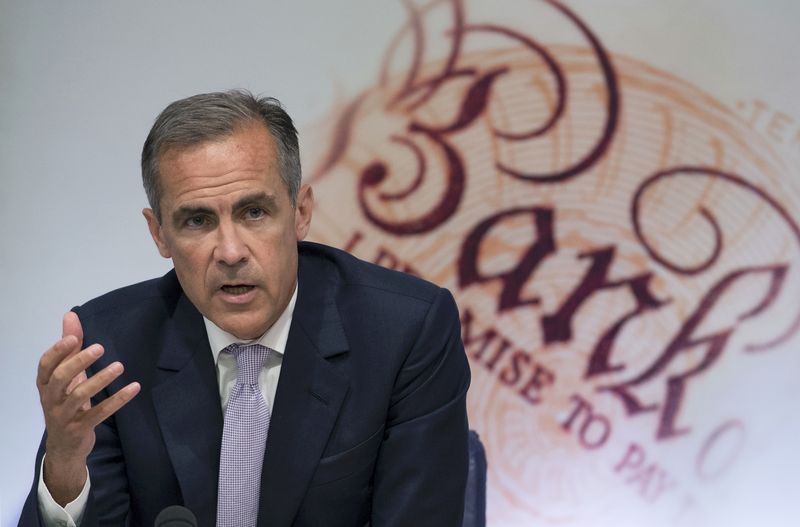Investing.com – The Bank of England (BoE) is widely expected to cut interest rates on Thursday to new record lows and perhaps announce further easing measures in an attempt to head off economic weakness after the U.K. decided to leave the European Union (EU), known as a Brexit, and data began to suggest that the British economy may be facing a recession.
Traders increased bets to 100% odds that the BoE will cut interest rates to 0.25%, a new record low, after post-Brexit data showed that U.K. manufacturing activity hit its lowest level since early 2013 and preliminary service activity dropped to its weakest since 2009.
The BoE has held interest rates at the current historic low of 0.5% since March 2009.
45 out of 47 economists surveyed by Bloomberg said that the British central bank was likely to cut interest rates, while a Reuters poll pointed to at least a 25 basis point (bp) reduction.
Consensus pointed to eight of the nine members voting for a reduction with only one member preferring to hold steady.
Experts were also speculating with other easing measures, such as restarting the asset purchase program which had been on hold since 2012, easing credit or lengthening the time taken for inflation to return to the bank’s 2% target.
This point of view would hardly come as a surprise as the BoE signaled as much at its last meeting in July.
“Most members of the Committee expect monetary policy to be loosened in August,” the minutes from the last meeting indicated, adding that the exact extent of any additional stimulus measures would be based on the updated economic forecasts.
Even though the July meeting showed that one member, Gertjan Vlieghe, already wished to cut the rate, another policy Kristin Forbes warned that the central bank should stay calm and not rush into a decision until more hard data was available.
Yet Forbes’ comments came before the aforementioned publication of the weak manufacturing and service PMIs.
“Today’s manufacturing PMI supports our forecast of the U.K. entering recession,” Barclays affirmed on Monday when the report was released.
The British bank forecast a 0.3% contraction in the third quarter, followed by another 0.4% drop in the last three months of the year.
In this light, market participants will pay close attention not only to the monetary policy decision itself but also the updated inflation report that will be released simultaneously and will reveal the BoE’s current position on the economic outlook.
No matter what action the BoE takes on Thursday, its governor Mark Carney is likely to insist in the follow-up press conference on the need for the government to take action due to the lag of monetary policy.
However, British finance minister Philip Hammond had previously suggested that new fiscal policies would be unlikely to be implemented until “autumn, by which time we will have some economic data available which allows us to make a measured decision.”
